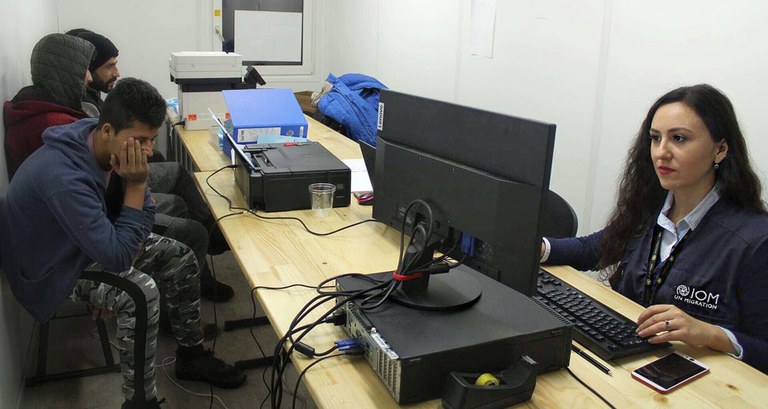She then explains how Télécoms Sans Frontières (TSF)’s connection helps not only migrants and refugees, but also humanitarian organisations, like in the transit centres of Bihać and Velika Kladusa, two towns about 50 km away and near the border with Croatia.
“Internet is also pertinent in data collection which is essential for humanitarian organisations. For instance, we collect information with online surveys on the beneficiaries’ satisfaction with regards to assistance given. In addition, social media is a great source of information for communities, and it is a useful way to get in touch with other aid agencies and hold them to account.”

TSF was among the first international NGOs to start its operations in these centres by installing internet connectivity with Wi-Fi access. Since the opening of Bihać, with a capacity of 2,200 migrants, more than 4,700 phones have been connecting to the network set up by TSF. In Velika Kladusa, the connection that TSF installed at the urgent request of IOM and the local authorities is dedicated only to the humanitarian actors working on site (UN agencies, local NGOs and government services).
These interventions are the fruit of a collaboration between TSF and IOM that started at the beginning of November 2018: a one year project aimed to reinforce the humanitarian coordination and to improve the co-existence of migrants, refugees and local communities, by offering free Internet connectivity.

